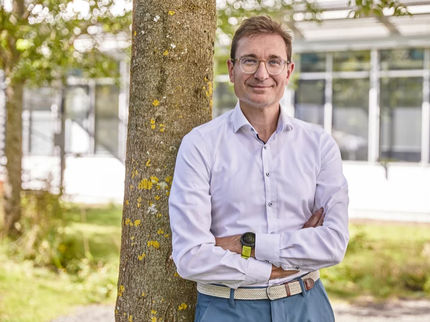RWE Power, BRAIN join forces in white biotech: co-operation on CO2 as raw material for new products
To convert carbon dioxide into microbial biomass or biomolecules: such is the goal of co-operative research agreed between RWE Power and BRAIN AG. The power generator and the biotech company want to equip micro-organisms” with new enzymes and explore innovative synthesis routes and pathways. Flue gas, rich in CO2 from a lignite-fired power station, feeds these designer micro-organisms. The process creates biomass and industrial products such as new biomaterials, bioplastics and chemical by-products. Possible applications, now being explored, include building and isolation materials and the production of fine and specialty chemicals. An experimental plant is to be located at RWE Power's Coal Innovation Centre, at its Niederaussem power plant site.
"Our search for biotechnological solutions to CO2 conversion proves a point: we have the energy to lead in climate conservation," declares Dr. Johannes Lambertz, CEO at RWE Power. "Our goal is constant expansion of our range in this field. As well as reducing and storing carbon dioxide, we want to develop further intelligent uses. Quite deliberately, we are combining what we know about power generation with the expertise of specialist companies such as BRAIN. We want to find as many different solutions as possible," adds Lambertz.
"The targeted use of 'nature's toolbox' is making many industrial processes more effective, environmentally compatible and more sustainable. White biotech is a pointer to the industry of the future, which will conserve the environment and its resources," notes Dr Holger Zinke, co-founder and executive chairman of BRAIN.
Other news from the department business & finance

Get the chemical industry in your inbox
By submitting this form you agree that LUMITOS AG will send you the newsletter(s) selected above by email. Your data will not be passed on to third parties. Your data will be stored and processed in accordance with our data protection regulations. LUMITOS may contact you by email for the purpose of advertising or market and opinion surveys. You can revoke your consent at any time without giving reasons to LUMITOS AG, Ernst-Augustin-Str. 2, 12489 Berlin, Germany or by e-mail at revoke@lumitos.com with effect for the future. In addition, each email contains a link to unsubscribe from the corresponding newsletter.
Most read news
More news from our other portals
See the theme worlds for related content
Topic world Synthesis
Chemical synthesis is at the heart of modern chemistry and enables the targeted production of molecules with specific properties. By combining starting materials in defined reaction conditions, chemists can create a wide range of compounds, from simple molecules to complex active ingredients.

Topic world Synthesis
Chemical synthesis is at the heart of modern chemistry and enables the targeted production of molecules with specific properties. By combining starting materials in defined reaction conditions, chemists can create a wide range of compounds, from simple molecules to complex active ingredients.


























































